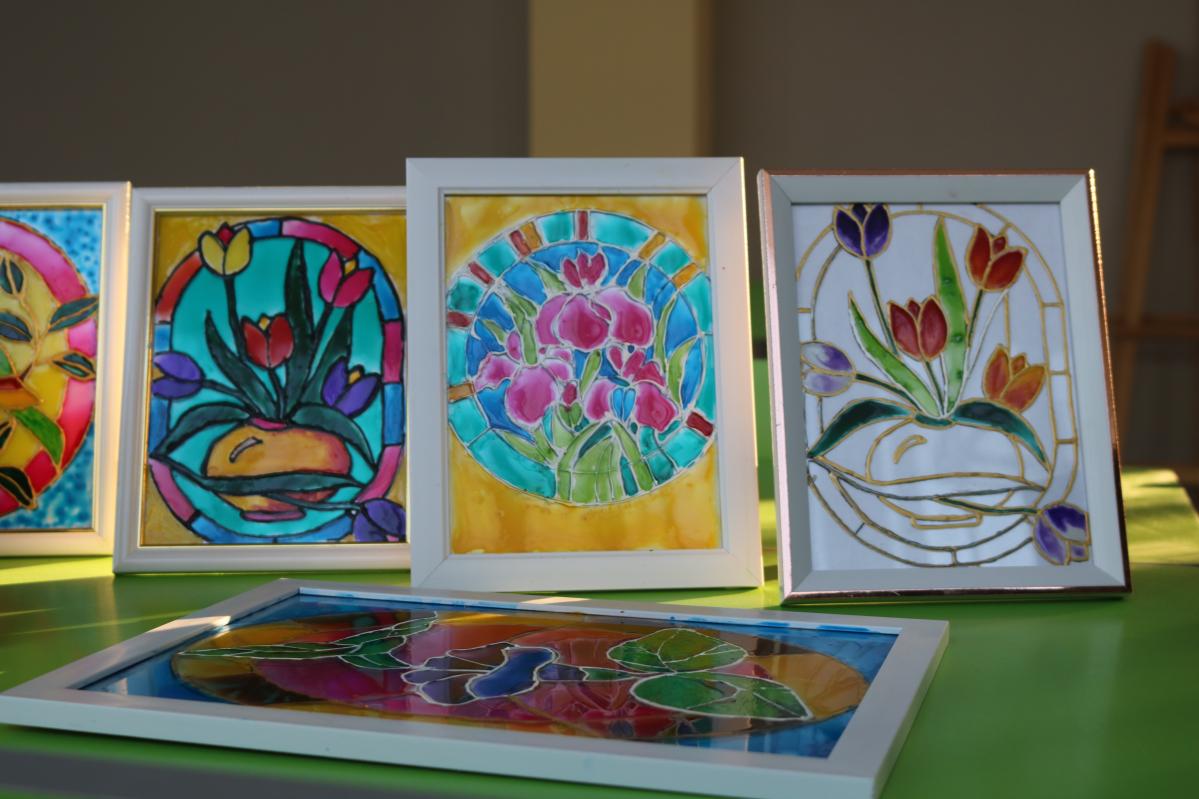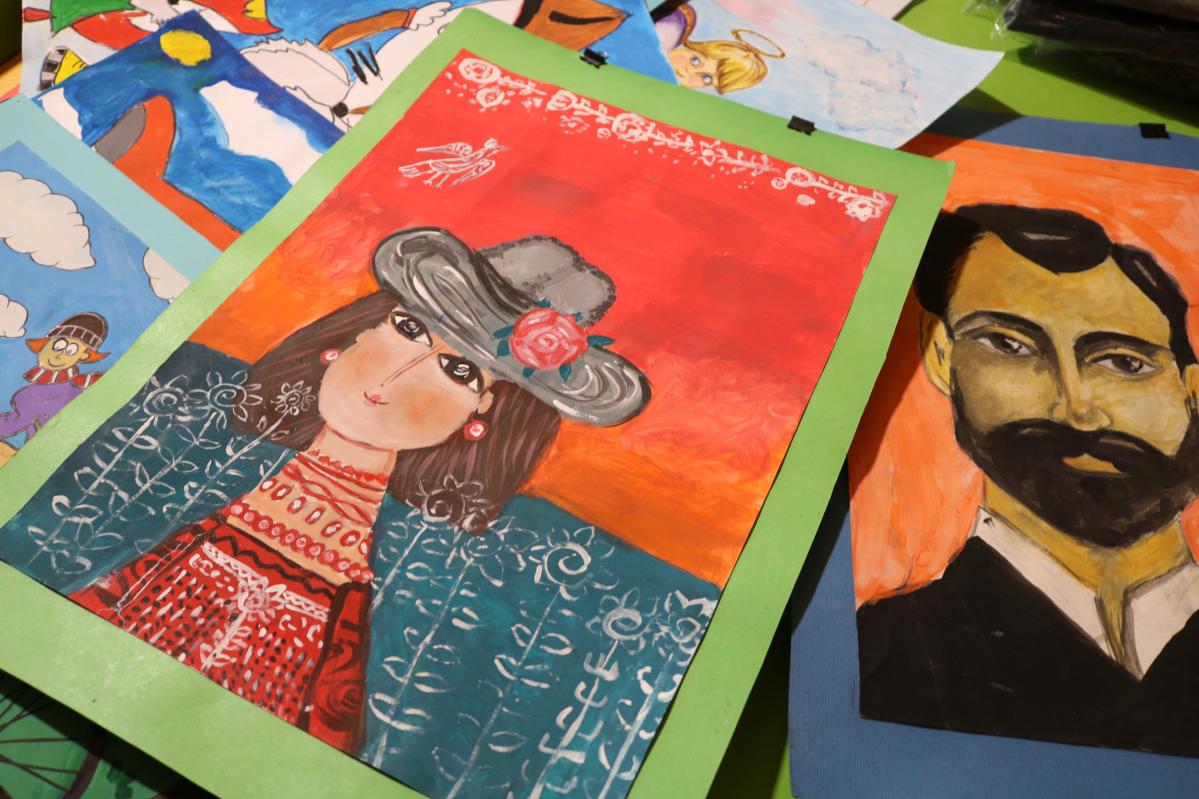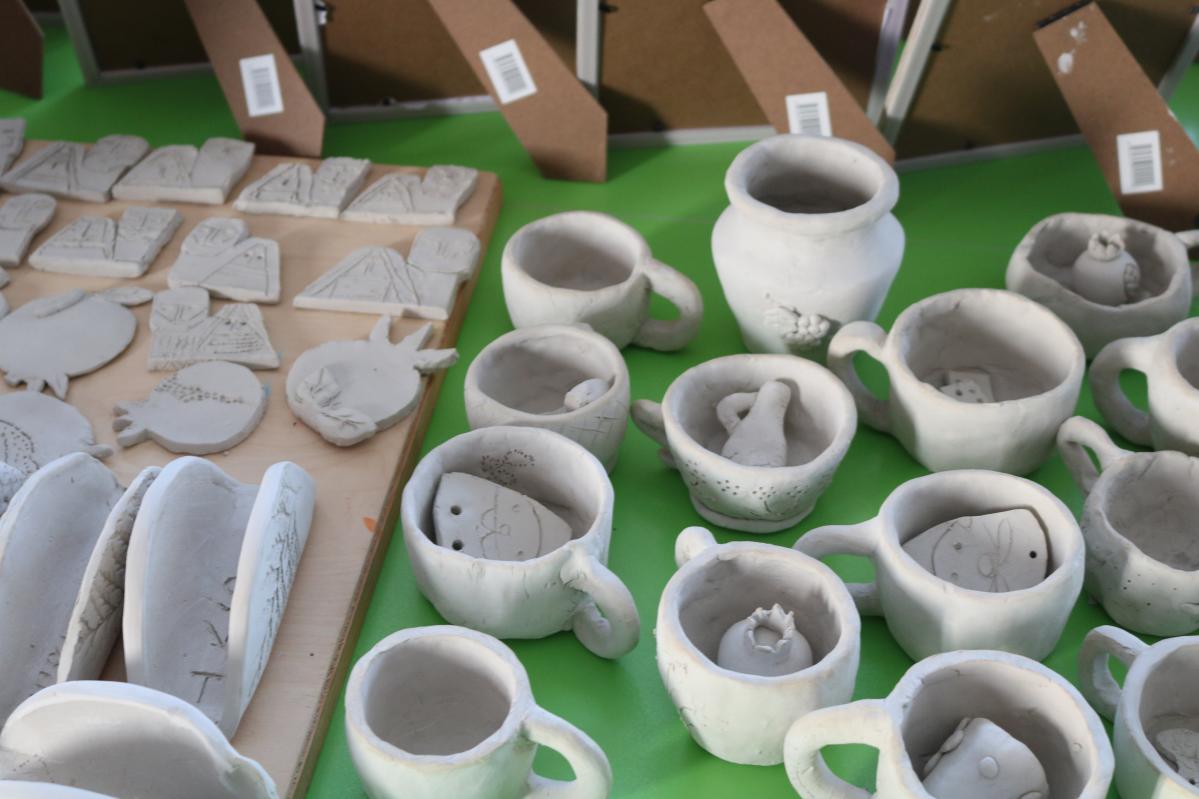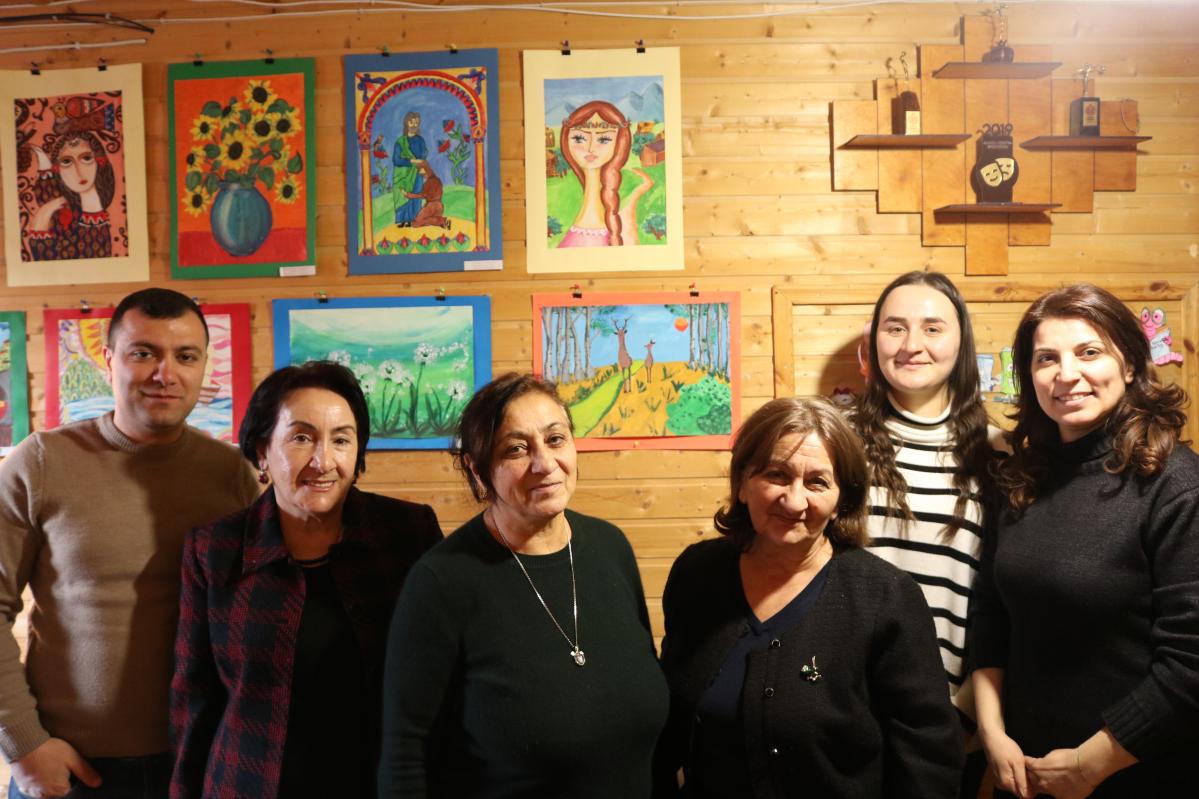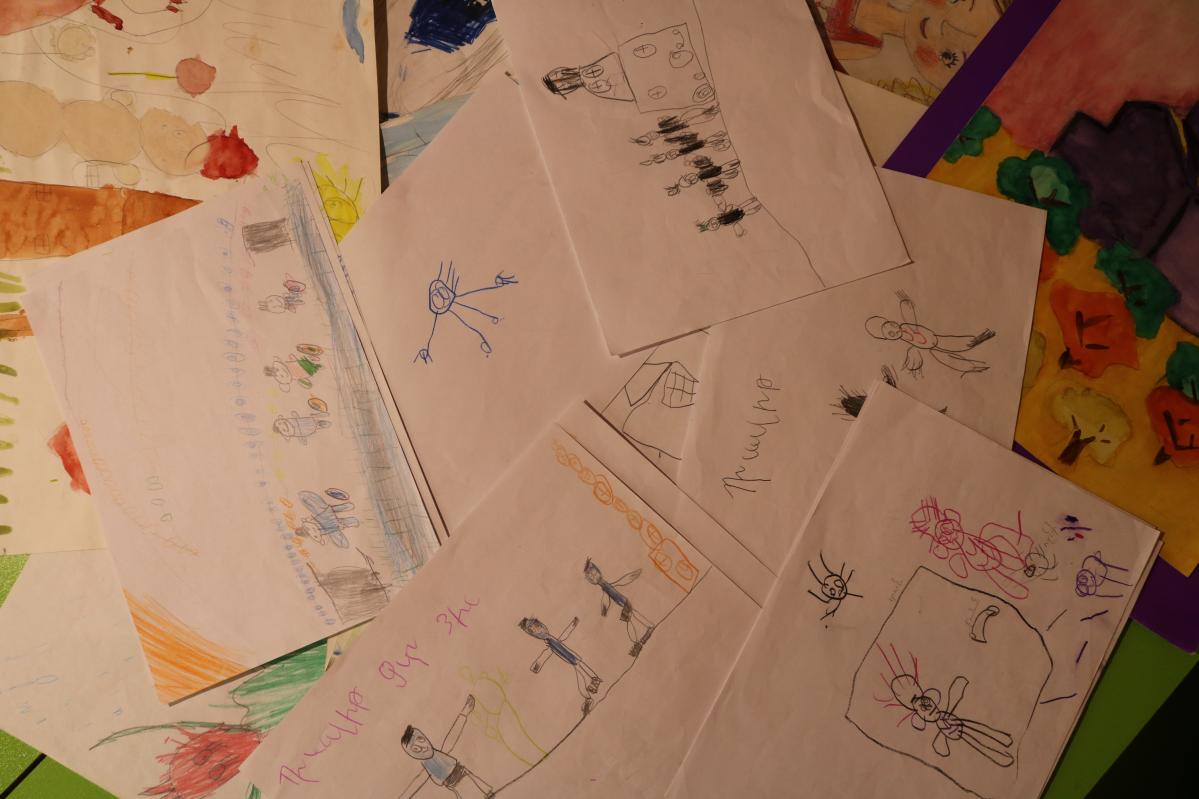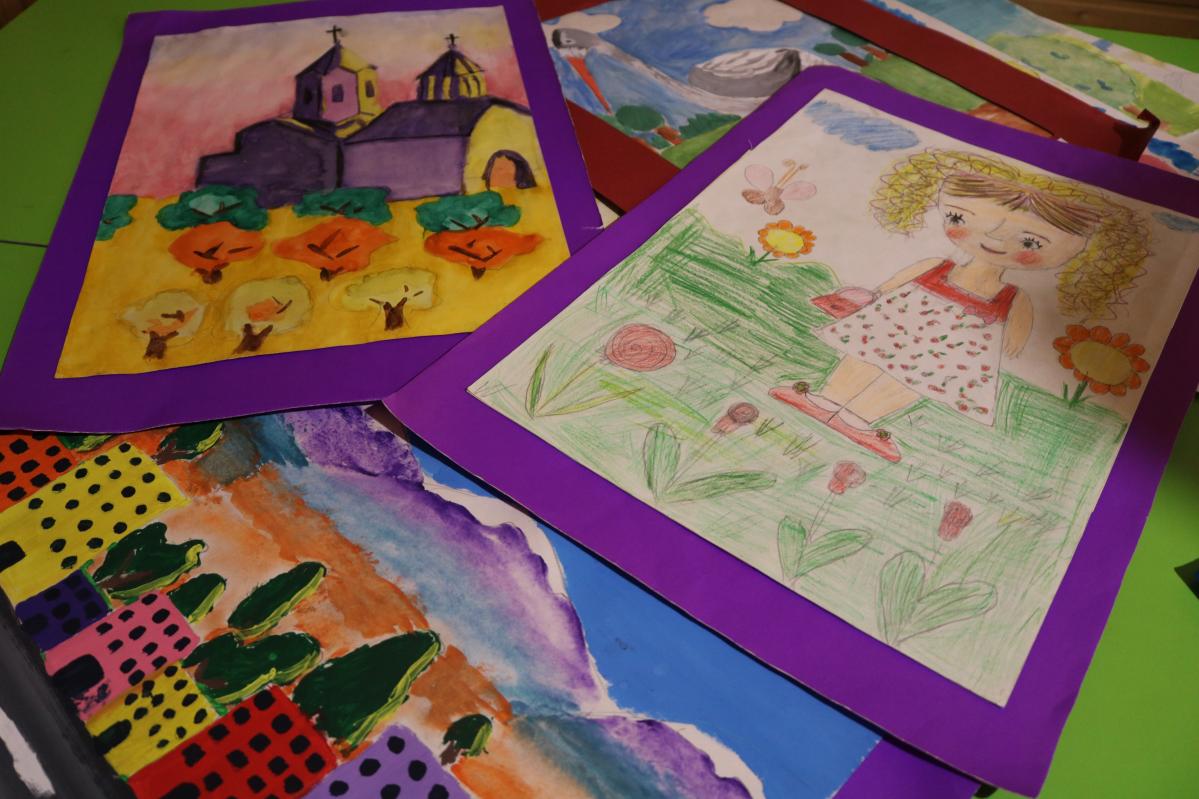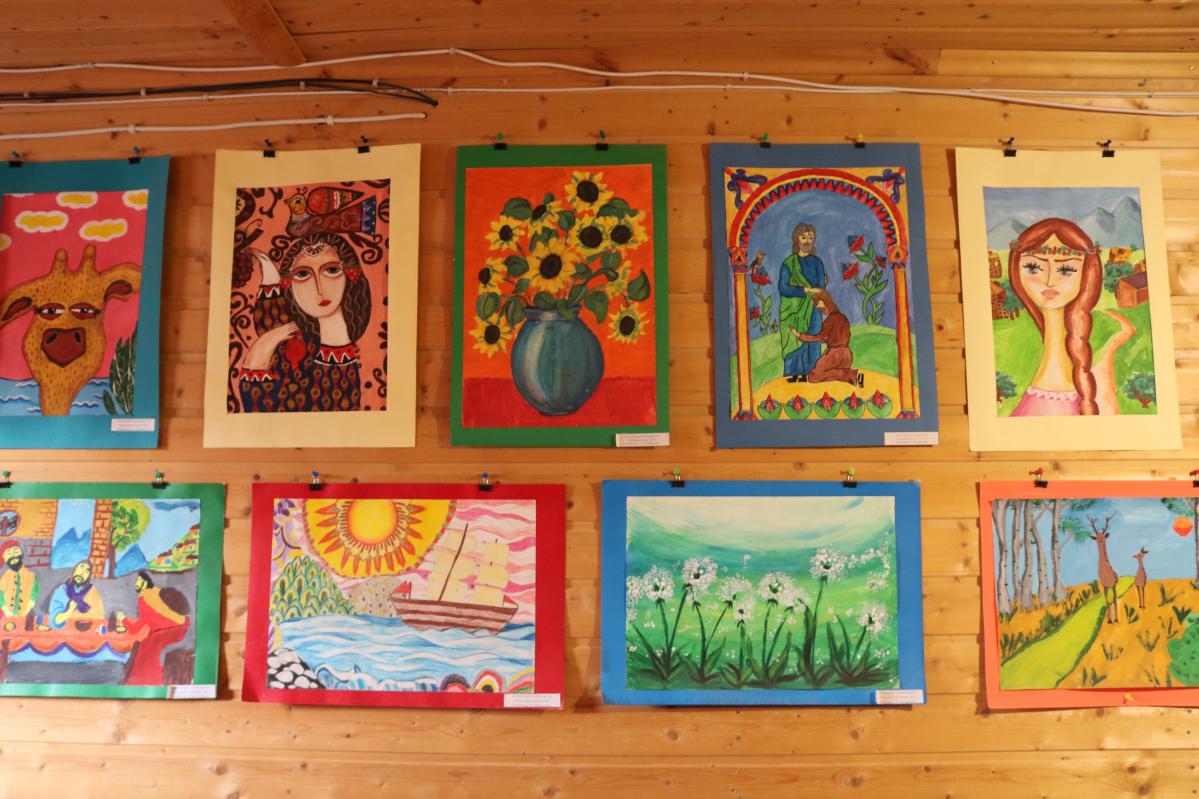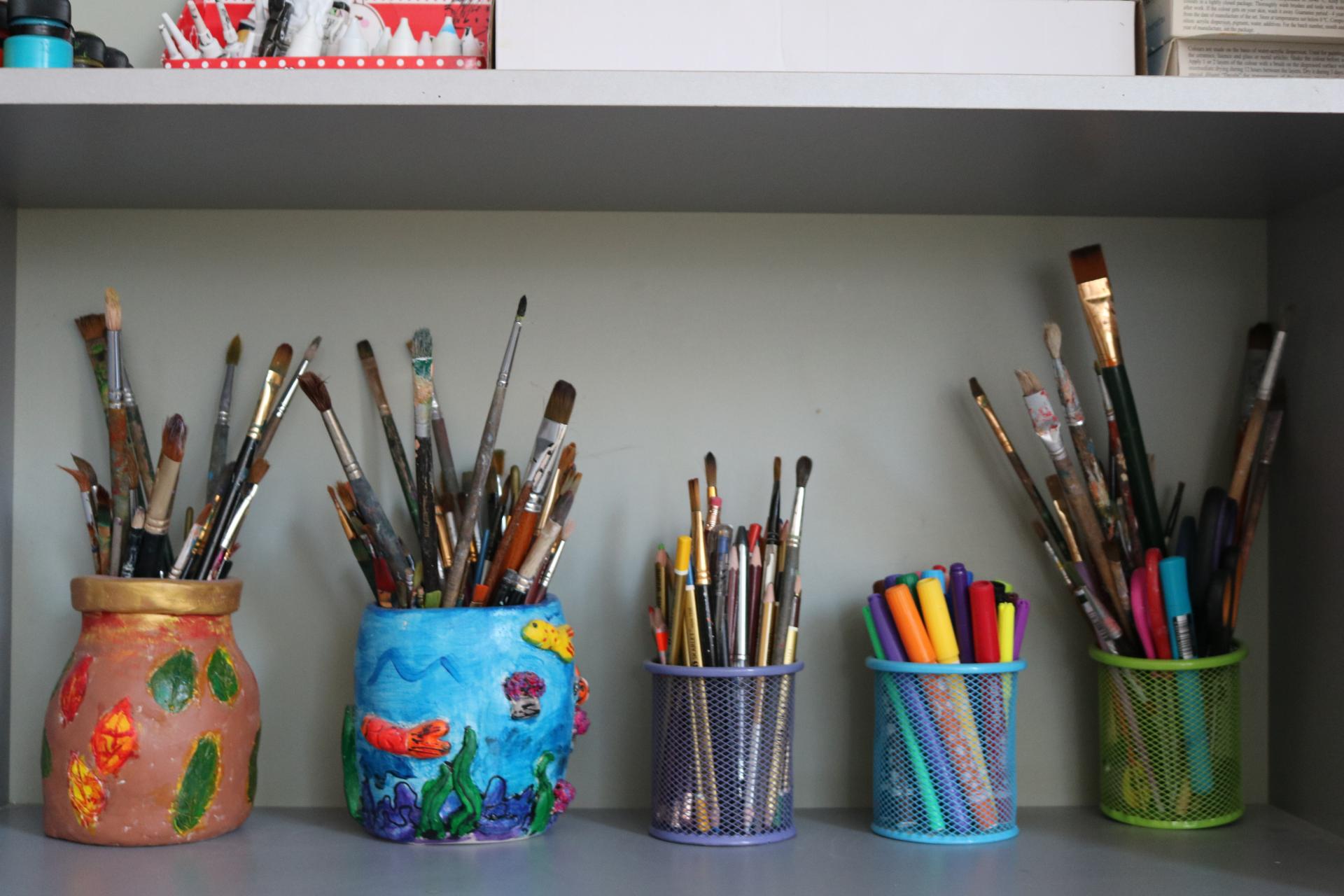

Healing Through Creativity: How Arts and Crafts Therapy Unites Refugee and Local Children
By Carlotta Wichmann, Action Against Hunger
Since its foundation in 2002, Family and Community NGO has been promoting the inclusion and development of children and youth from vulnerable families across Armenia. In a previous article, published back in October 2024, we shared an insight into the work the NGO has done since the establishment of Metsamor Puppet Theatre in 2003 that was completely renovated by Action Against Hunger with financial support from UNHCR.
Recently, Action Against Hunger South Caucasus revisited the NGO in one of their cultural centres, in the urban community of Metsamor, to hear more about the work that they are doing. On this occasion, we saw the NGO’s Arts & Crafts therapy programme, which provides children and adults with a safe space to explore their creative talents, develop resilience, and build meaningful connections through various art forms such as painting, drawing, and pottery.
Metsamor is a town located in Armavir Province, named after a nearby river and originally founded to host the employees of the Metsamor Nuclear Power Plant. For this article, I interviewed Knarik Garanfilyan, the founder and Executive Director of the organisation, who explained their motivation for opening the centre: “In this town, poverty rates are high with a child poverty rate of 30 per cent in Armavir province[1]. This results negatively on these children’s lives.” She explains that “discrimination against persons who are poor and vulnerable remains prevalent.” As problems at home, or in school, are often reflected in children’s behaviour it led the NGO to establish a cultural centre in Metsamor, where a diverse team of social workers, speech therapists and psychologists work to support vulnerable children and their families. Since September 2023, the town has also been hosting over 1,800 refugees from Nagorno-Karabakh, many of whom have been supported by the NGO.
The children receiving support are usually identified and referred to the NGO by schools, municipality staff, or from the governor’s office. “For us, there are no “bad children,” it’s their lives and circumstances that are bad,” says Knarik. She outlines the main objective at Metsamor cultural centre as to break the cycle of deprivation and violence, and to include and integrate children of all ages and abilities into the community. “We need to work with the children, give them tools to change their outcome and the outlook on their lives – and art therapy is a big part of this,” Knarik stresses.
The children rush to the centre straight after school, as there aren’t many other child-friendly places in their neighbourhoods. Here, they are given snacks and fruit, and they are provided support from social workers, psychologists and other NGO staff.
During our time spent talking about the Arts and Crafts therapy programme, Knarik shows me children’s drawings to help me better understand the progress children make in processing the trauma of the conflict over time. Drawings from early sessions show scenes derived from memory, primarily dark colours and thick lines are used. She explains that later the progress made in therapy becomes visible particularly in the themes of the drawings. Knarik shows me colourful drawings of buildings, bright skies and a girl standing in a field of flowers. The brighter colours hint at the improved emotional state, which she highlights, and is accompanied by behavioural change among the children.
[1] “Statistical Committee of the Republic of Armenia” data for 2023.
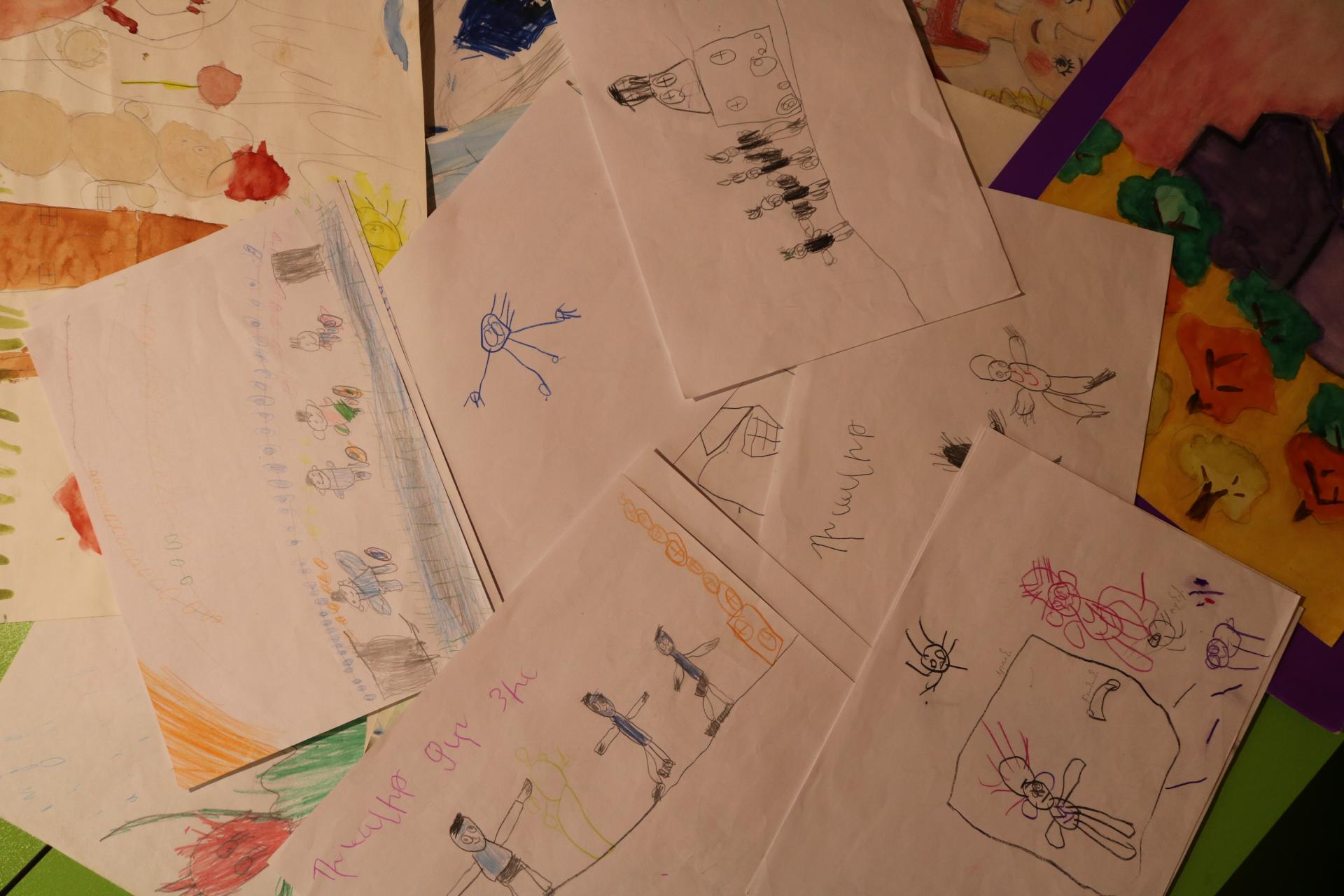
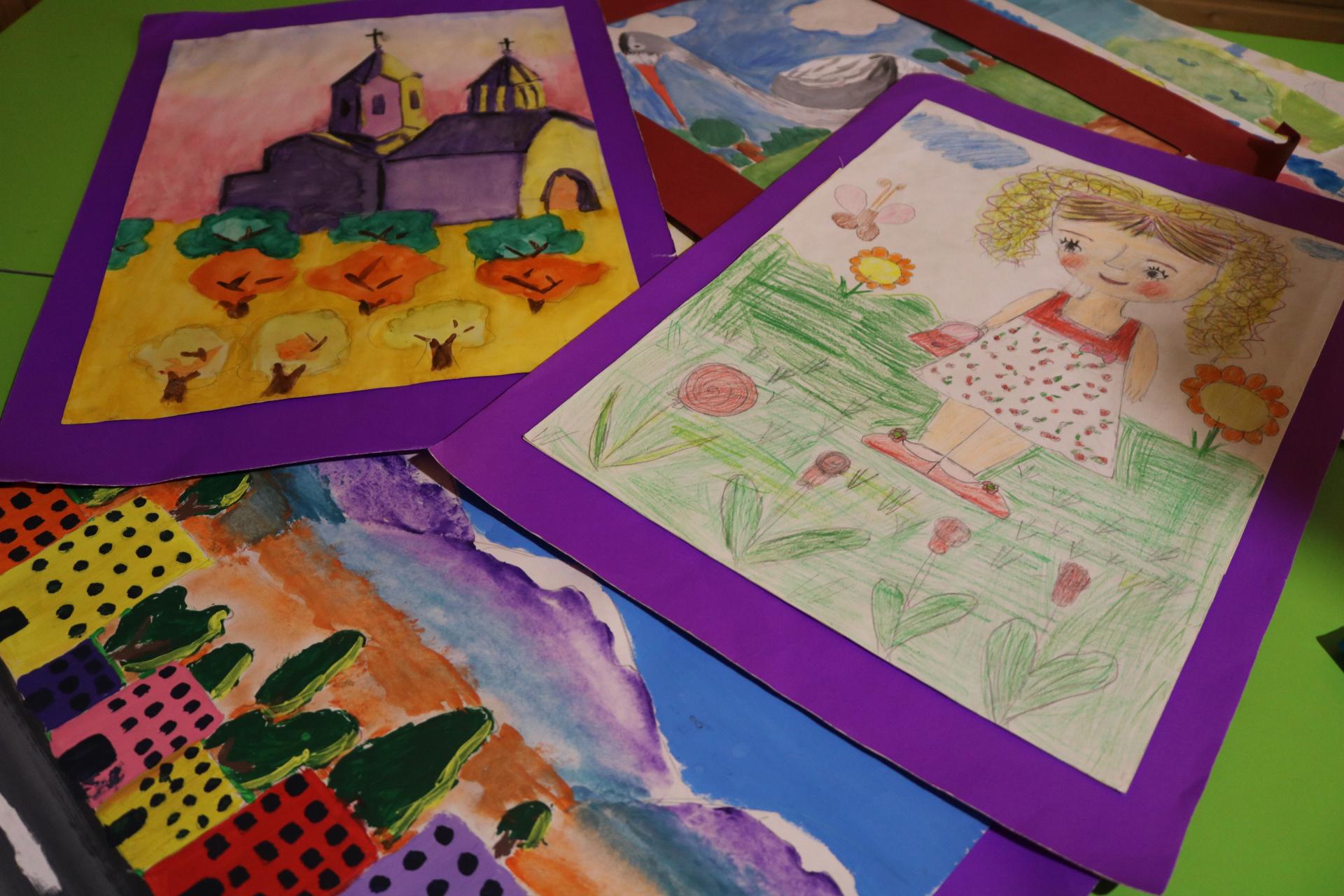
On top of offering children support in processing trauma, the cultural centre serves as a vector for social cohesion and inclusion, “many of the children face stigmatisation in school, but here, all kids are equal,” Knarik says. Here, children are given the opportunity to find friends, learn and process their emotions through the assistance of professionals.
“They start to thrive in this positive environment and children who have struggled in school before, are becoming increasingly more motivated to attend classes,” she says, which she attributes to the NGO staff and their dedicated work and commitment to support children in need.
